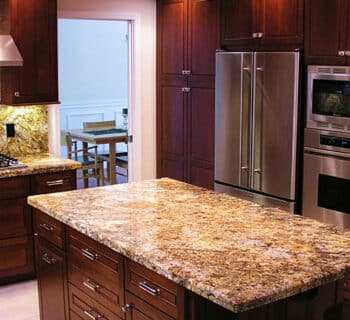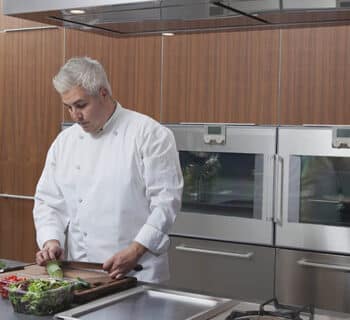The first move in a new kitchen is the choice of surface material for the countertop that suits your lifestyle. Your counters are where, after all, cooking actually happens. In 21st-century kitchen designs, there are more choices and they feel fantastic than it has ever been. Finding marble countertops can be daunting.
Types of countertops
Durability, material costs, configuration, as well as how it will reconcile with your house's furniture, you have to note. It's all the countermeasure: it is best to figure out the pros and cons of the countertops for those who are contemplating. In particular, because materials can be comparable in price.
Quartz Countertops
For kitchen countertops, quartz countertop is a very solid replacement that is not brittle. It removes water stains, bacteria, and other food stains without sealing, making it very easy to protect. Naturally, it is acid-immune and does not stain rapidly. Furthermore, this material is beautiful, and with a wide variety of color options, it is sure to catch the eye. When picking your quartz countertops, your options are almost endless, since quartz ranges from natural colors to other colors such as gold and blues. If you want to bring personality to your kitchen, quartz is the way to go!
Cons
That being said, quartz countertops have clear seams, and UV light can cause staining or fading.
Granite Countertops
Granite is another pleasant, timeless countertop alternative. For how resilient it is, it is particularly admired. It is very sturdy and almost impervious to burning and needs very little maintenance when treated with newer sealers. Visually rich and dynamic, they are highly heat-resistant and can withstand stains and bacteria when properly sealed. Granite is phenomenal for baking preparations such as rolling dough. While certain granite countertops need sealing annually, pre-treated countertops often have a maintenance-free alternative available.
Cons
On these countertops, visible seams can occur. Use caution at any pressure points, as granite will crack.
Marble Countertops
Marble is a classic alternative, majestic and smooth. From the way it is made, the charm of marble originates. It is composed of limestone or dolomite rock that is subjected to extreme pressure and heat. The severe conditions cause the stone to move, activating the distinctive veining that separates marble. Marble countertops' beauty and durability will add value to your overall home, just help ensure that you use Dry-treat sealer to protect your marble counters.
Laminate Countertops
Laminate is the most affordable countertop option. The countertops consist of laminate parts glued onto the plywood or particleboard substratum. The laminate is suitable for DIY installation, avoids water, and is easy to clean. Countertop sections or boundless sheets can be ordered from the laminate. You can install the sheets over fully prepared current laminate countertops or use them to assemble countertops to your own preferences.
Cons
Laminate countertops occasionally have visible seams and corners, and they are prone to cuts and scratches. The heat will burn laminated countertops, so be vigilant to shield them from hot pots, pans, etc.
Sintered Stone Countertops
Sintered stone kitchen countertops are durable materials that are rain, spills, hits, impacts, and harm resistant and do not require sealing. These countertops are made from rocks, such as feldspar or clay, fused with pigments. They are non-porous, help deter germs and bacteria from developing, and are easy to clean.
Cons
Sintered stone countertops contain gaps and you can presume to see variations in color and texture across different pieces because they are made of natural materials.
Conclusion
So, what are you waiting for? Reach out to your nearest granite countertop installers Potomac and get yourself a new kitchen look!









